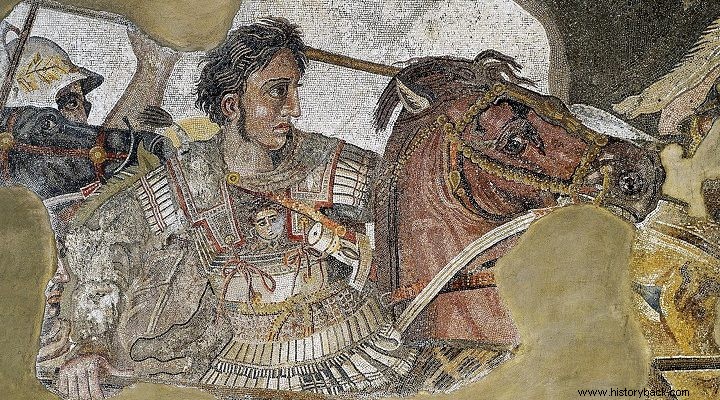
The circumstances of Alexander the Great's death still challenge the imagination of many scientists. New Zealand researcher Kathryn Hall of the Dunedin Medical School formulated another theory about the mysterious illness that led to the death of the soldier, who, according to her, was buried alive.
According to Hall, Alexander's death was due to his stomach infection with the bacterium Cmbylobacter pylori, which caused him symptoms similar to the neuroparalytic disease Guillain-Barre syndrome (GBS).
This autoimmune disease affected his peripheral nervous system preventing him from moving, speaking and breathing for six days. It is possible that the Macedonian king was alive when his soldiers prepared his body for burial in 323 BC.
Alexander's muscles were so paralyzed that doctors didn't realize he was still breathing when they pronounced him dead a week before he finally died. "I wanted to fuel a new dialogue and rewrite the history books, arguing that Alexander's death occurred six days later than we accept," Hall said.
According to the sources, Alexander's illness appeared after a night of heavy drinking. The next day, he complained of widespread fatigue, but again drank heavily. The next day he was paralyzed by acute stomach pains, while he developed symptoms of fever.
Bedridden and in excruciating pain, Alexander could barely blink his eyes and wiggle his fingers already eight days after the onset of symptoms. On the 11th day, he was pronounced dead, although the attendants at his bedside assured him that he had spiritual clarity until the last moment.
According to Hall, these symptoms indicate Guillain-Barre syndrome, which occurs when the immune system attacks the nervous system, paralyzing the patient. Today this syndrome affects one person per 100,000 in the USA and Britain.
This, according to Hall, explains the paralysis in the legs and arms of the warlord who in the final stage could not speak. The disease caused by a stomach bacterium does not affect the mental capabilities of the patient, hence those present found Alexander's lucidity.
The new diagnosis raises reasonable suspicions that Alexander was actually buried alive. At that time, doctors did not take a patient's pulse to determine if he was alive, but looked for signs of breathing. But the paralysis had gradually reduced the function of the respiratory muscles to the point where his breathing was too faint for the doctors to detect.
Later, Greek historians wrote that six days after his burial, Alexander's body had not decomposed, proof that Alexander was a god. But Hall argues that this simply proves that Alexander may well still be breathing, but that his breathing had diminished so much that he would probably "be in a coma when his burial procedures were set in motion, but they were unable to perceive".
